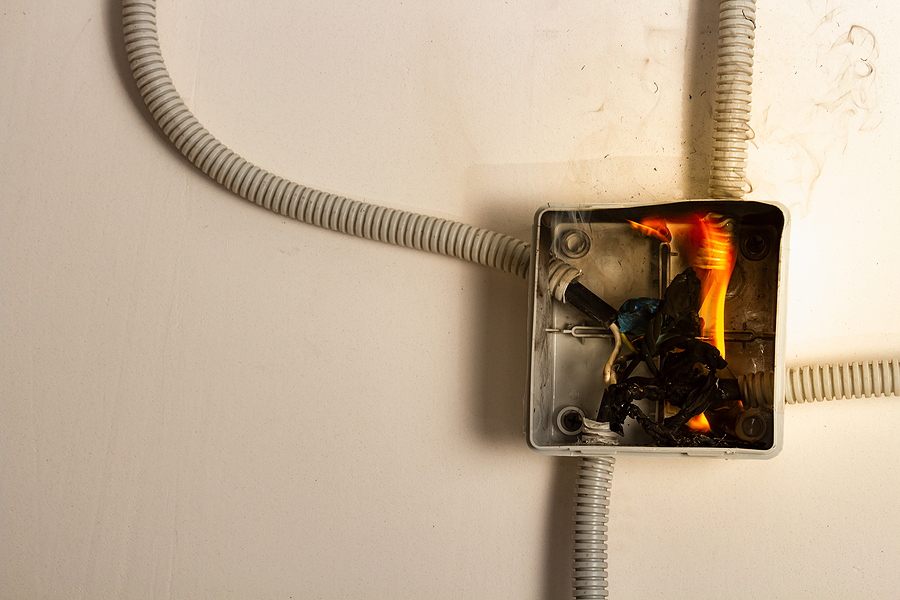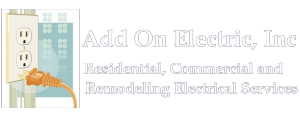Albuquerque Homeowner Electrical Safety Strategies Everyone Needs to Know

Have you ever wondered about the best electrical safety tips and how these might relate to your own Albuquerque home? While every home is unique, there are several electrical safety tips that may help you ensure that your property is as safe as it can be – and our experts are here to help. As such, today, we’re looking at ten key tips that can help.
10 Key Albuquerque Homeowner Electrical Safety Tips You Need to Know
Not sure how to improve your Albuquerque home’ electrical safety? Give the following ten tips a try to help make your property safer overall.
#1 Always Cut the Power First
The first tip to improve your property’s electrical safety is simple: always make sure you turn the power off when not in use. And, if you experience any electrical issues, make sure that you turn the power off at the source and use a tester to ensure that power isn’t still flowing to the area.
#2 Have the Appropriate Fire Extinguisher on Hand
Another critical factor to consider regarding your property’s electrical safety is your access to fire extinguishers – and, critically, the type of extinguishers you have to hand. Indeed, while many people assume that water alone will be enough, this belief leaves you compromised with electrical fires. Since water contains electricity-conducting minerals that conduct electricity, trying to put out an electrical fire with water could result in a large shock or significant fire risks.
#3 Use Multiple Outlets
Many of us just use a single outlet – but did you know that this can increase the chances of a fire? With this thought in mind, try to spread out your appliances where possible to avoid overwhelming the outlet.
#4 Check the Temperature of Your Outlets
It’s not uncommon for outlets to get hot when there’s a problem. Accordingly, try to go around your Albuquerque property regularly to check that the outlets are cool. If you do happen to find any warm outlets, turn off the power supply and get a professional’s support.
#5 Consider the Kids
Children can be at huge risk with power outlets. As such, try to install outlet covers if there’s any risk of children (or even pets) trying to fiddle with the outlets. Spring-loaded options are often among the most popular and effective.
#6 Watch for Flickering Lights
In many cases, we overlook flickering lights – however, these often represent loose wires in the system, preventing the consistent flow of electricity. Sometimes, tightening the bulb may be enough to fix it, but failing this, you may need professional help.
#7 Install Arc-Fault Circuit Interrupters
Did you know that thousands of fires yearly result from arc faults? Fortunately, investing in arc-fault circuit interrupters can offer a simple way to help prevent fires, making this a highly important electrical safety investment for your home.
#8 Install Ground Fault Circuit Interrupters
It’s not just arc-fault circuit interrupters that you should be investing in, but potentially also circuit interrupters for ground-faults. These systems work by shutting off the power supply in the case of short-circuiting, which reduces the risks of shocks and electrical fires breaking out. It’s also helpful in cases where your systems’ insulation may have degraded.
#9 Consider Your Use of Extension Cords
We’ve already looked at using power outlets for multiple items – but using extension cords long-term is even riskier. While they can be a very handy short-term option, especially if you don’t have a power outlet within reach, extension cords should never be used permanently.
#10 Don’t Hesitate to Contact the Professionals
Your property’s electrical safety is too important to compromise. So, if you’re at all concerned about your home’s existing electrical systems, get help from a licensed team of professionals instead.
Final Thoughts
If you’ve been looking to improve your property’s electrical safety, considering today’s key tips could help. Hopefully, this will have given you some further ideas on where to start with safety-proofing your own home in Albuquerque.
